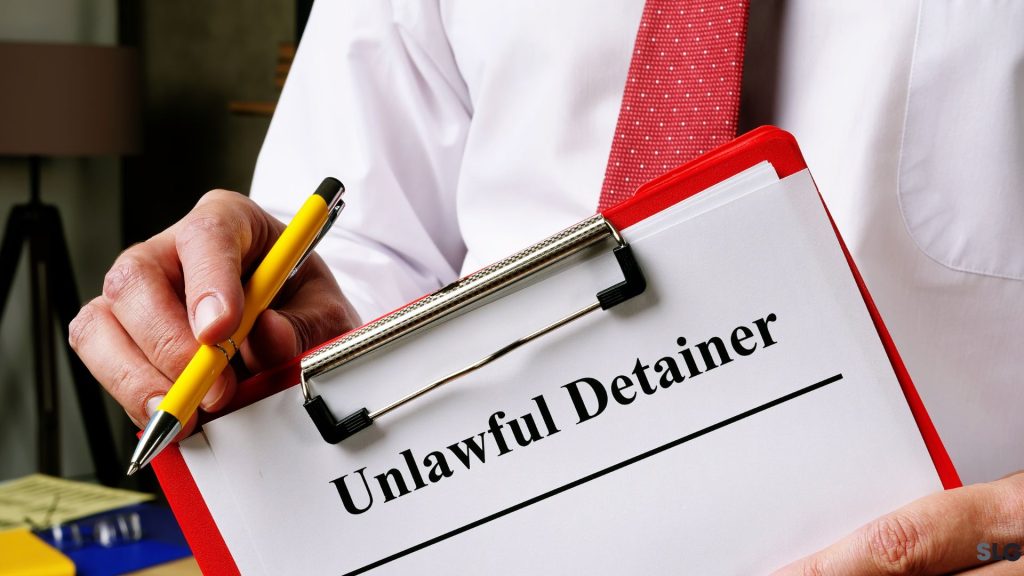What Are the Common Instances Dealt With by an Expulsion Attorney in Tenant Disputes?
Expulsion legal representatives play an essential function in attending to a range of tenant disputes that can occur in rental contracts. These experts navigate complex lawful frameworks to represent both occupants and property managers, making certain that all events understand their civil liberties and commitments. Recognizing the subtleties of these disagreements can brighten the more comprehensive effects for occupant legal rights and property manager obligations.
Non-Payment of Lease
Non-payment of lease is a common problem that can result in complex lawful conflicts in between property owners and occupants. When lessees fall short to pay their rental fee in a timely manner, property managers may deal with financial pressure, triggering them to launch legal proceedings. The expulsion process typically starts with a composed notification, demanding payment within a specified timeframe. If the occupant does not comply, the proprietor may submit for eviction in the ideal court.
In numerous territories, the legal framework bordering non-payment of rental fee is developed to secure both events. Occupants might have defenses available, such as declaring unliveable living conditions or improper notification. However, property managers have to abide by strict treatments mandated by regulation, consisting of offering sufficient notification and submitting the necessary documents (eviction attorney miami).
An eviction lawyer plays a vital role in navigating these disputes. For occupants, lawful representation can give insight right into possible defenses and aid bargain favorable end results.
Lease Infractions
Lease offenses stand for a considerable concern in landlord-tenant relationships, as they can lead to disputes and potential expulsion process. These offenses happen when tenants fail to stick to the terms outlined in their lease arrangements. Common examples include unapproved subletting, failure to maintain sanitation, maintaining pet dogs without consent, or engaging in turbulent actions that influences other renters.
Landlords have a lawful responsibility to address these infractions immediately - eviction attorney miami. Usually, they will certainly provide a composed notification to the occupant, describing the specific breach and offering a specified timeframe for correction. If the occupant fails to conform, the proprietor may launch eviction proceedings, which often demands legal intervention
Eviction lawyers play a vital duty in these circumstances by making sure that the eviction procedure sticks to local laws and laws. Additionally, tenants encountering allegations of lease violations might look for lawful advise to object to the claims or discuss terms to stay clear of expulsion.
Wrongful Expulsion Cases
Wrongful eviction insurance claims are an important aspect of landlord-tenant regulation, addressing scenarios where a renter is eliminated from a rental property without lawful justification. Such insurance claims commonly develop when landlords stop working to comply with proper lawful procedures throughout the expulsion process, consisting of not offering the required notice or conducting expulsions without a court order.
The legal structure surrounding wrongful eviction varies by jurisdiction yet usually supplies tenants with the right to oppose an expulsion if it does not have a valid reason or if due procedure was not observed. Common grounds for wrongful expulsion cases include retaliatory actions by the proprietor, eviction based upon discriminatory reasons, or eviction for factors that go against neighborhood or state YOURURL.com guidelines.
In seeking a wrongful expulsion insurance claim, tenants might look for numerous remedies, including reinstatement to the rental residential property, damages for shed items or psychological distress, and legal fees. An eviction lawyer plays an important function in these situations, assisting tenants in collecting evidence, browsing court procedures, and promoting for their civil liberties.
Recognizing the nuances of wrongful expulsion cases is crucial for both tenants and landlords to ensure conformity with the regulation and to protect their particular passions within the rental partnership.
Lessee Legal Right Issues
Numerous tenants may be uninformed of their legal rights, which can result in exploitation and unreasonable treatment by property owners. Understanding lessee civil liberties is critical for keeping a reasonable rental connection and protecting oneself from possible misuses. Typical occupant civil liberties include the right to a habitable living environment, protection against discrimination, and the right to personal privacy.
Tenants can request essential fixings and upkeep, and proprietors are legally bound to resolve these problems quickly. Furthermore, occupants are protected under fair housing regulations, which forbid discrimination based on race, sex, religion, and various other aspects.
Moreover, occupants deserve to privacy, indicating property owners can not enter the rental without correct notification, except in emergency situations. Many renters are additionally not aware of their civil liberties pertaining to security deposits, including the demand for proprietors to return down payments within a certain timeframe and offer itemized deductions for any kind of problems.
When go disputes develop over tenant rights, an eviction legal representative can give essential advice and representation to assist tenants insist their civil liberties and browse intricate legal circumstances. Recognition of these legal rights empowers tenants to stand against unfair practices and secure their real estate security.
Building Damage Conflicts
Property damages disputes often emerge between lessees and proprietors, making complex the rental relationship and possibly bring about lawsuit. These conflicts typically center around claims of damages incurred during the occupancy that surpass regular wear and tear. Landlords might seek settlement for repair services they believe are the result of lessee negligence, while tenants may dispute such claims, arguing that the problems were pre-existing or a result of elements beyond their control.

In most cases, mediation may deal with disagreements without resorting to lawsuits, saving both parties time and sources. If unsolved, these disputes can escalate into expulsion proceedings, underscoring the relevance of lawful depiction in shielding the rights and passions of both property owners and renters.
Conclusion
Eviction lawyers play an important role in fixing renter disputes by dealing with numerous usual cases, consisting of non-payment see this here of rent, lease offenses, wrongful expulsion claims, occupant legal rights problems, and property damage disagreements. Their knowledge helps with a better understanding of lawful rights and responsibilities for both property owners and tenants. By navigating the intricacies of eviction procedures and promoting for fair therapy, expulsion attorneys add substantially to maintaining justice within the rental housing system.
If the lessee does not comply, the landlord might file for eviction in the appropriate court.

Furthermore, occupants facing allegations of lease violations might seek lawful guidance to object to the insurance claims or discuss terms to stay clear of eviction. Landlords might look for payment for repair work they think are the outcome of renter carelessness, while tenants might dispute such claims, arguing that the damages were pre-existing or a result of factors beyond their control.
Expulsion attorneys play an important function in settling tenant conflicts by attending to numerous common situations, consisting of non-payment of rental fee, lease offenses, wrongful expulsion insurance claims, lessee rights issues, and residential or commercial property damages disputes.